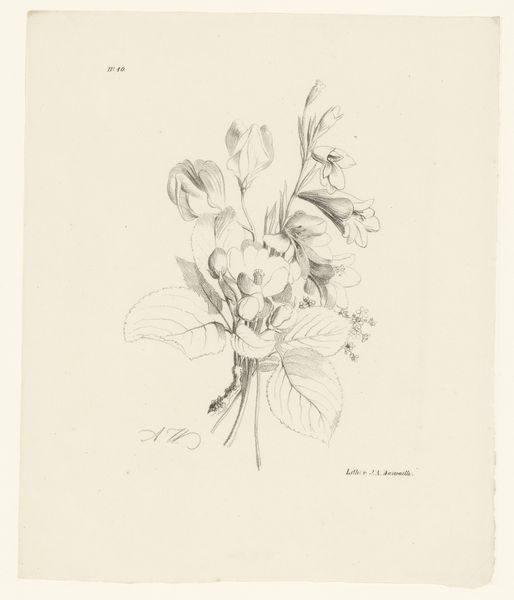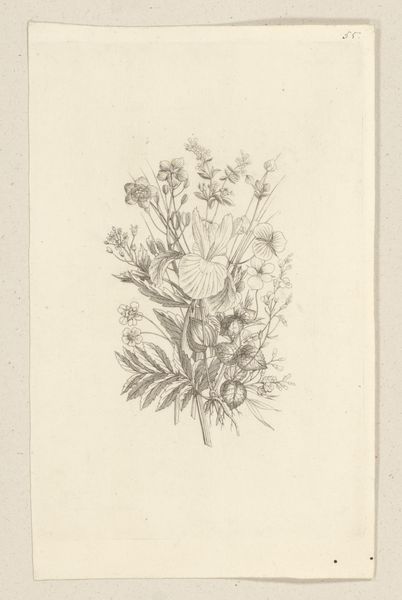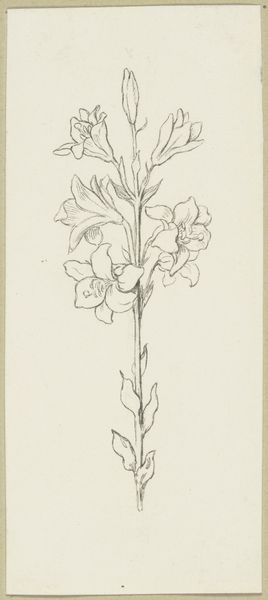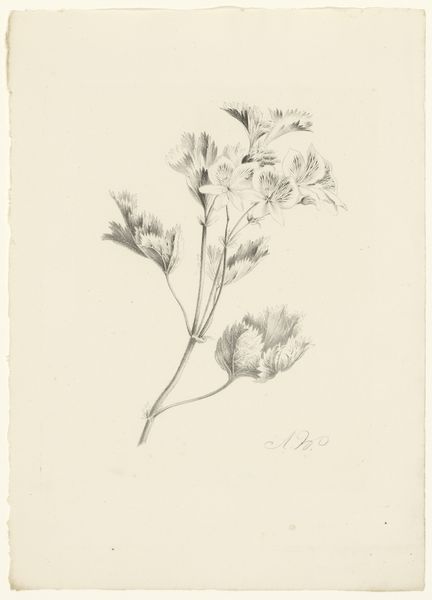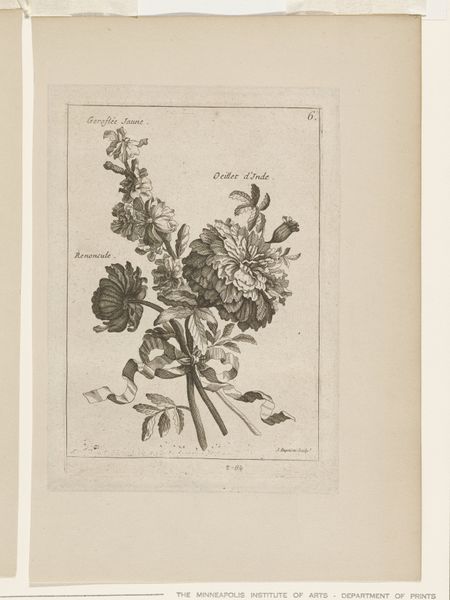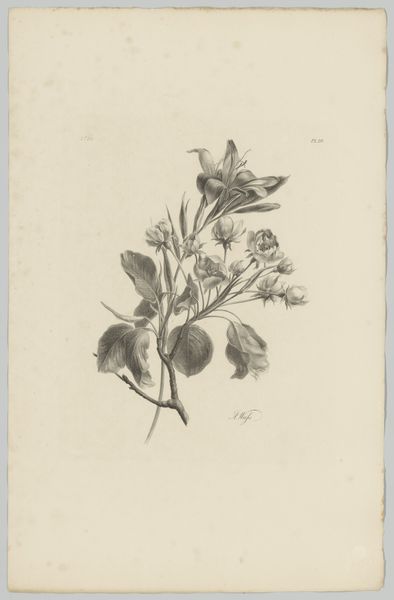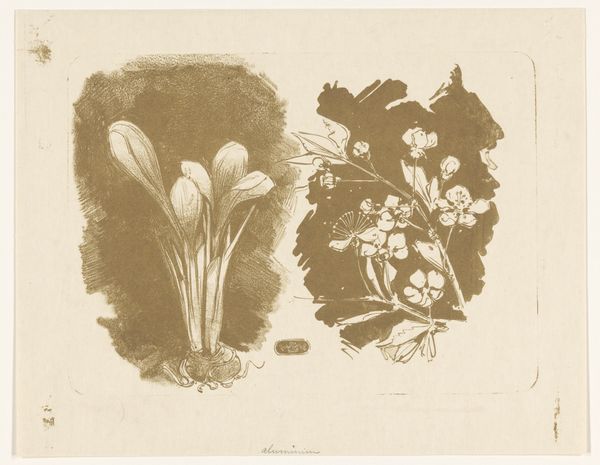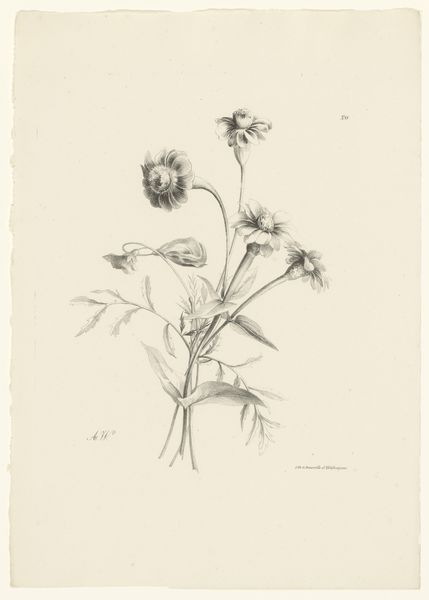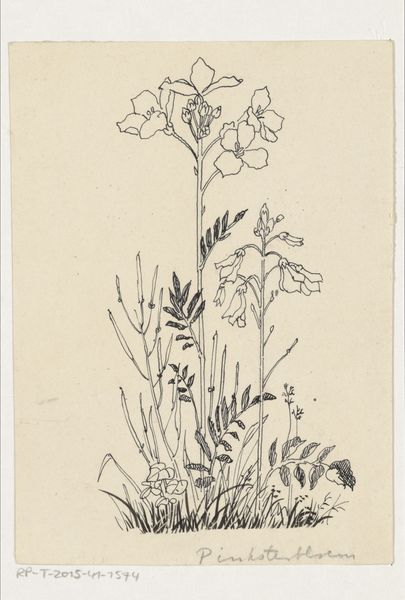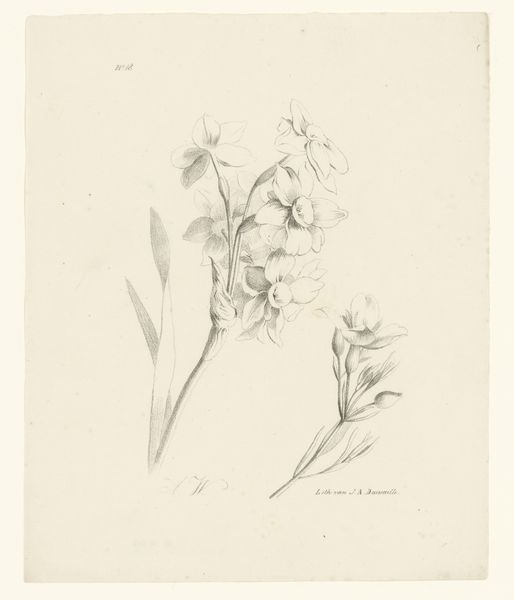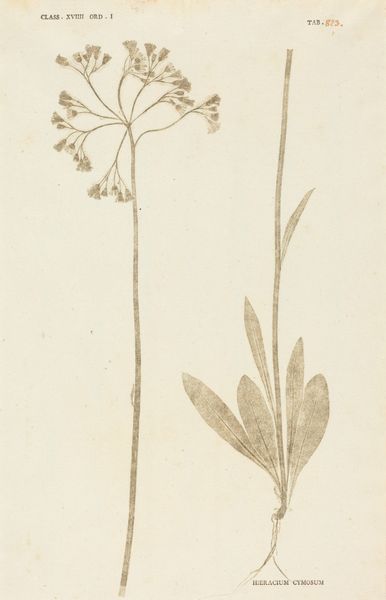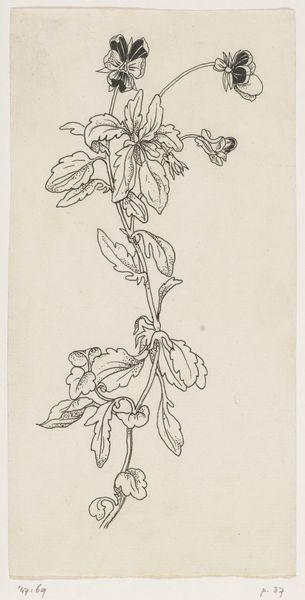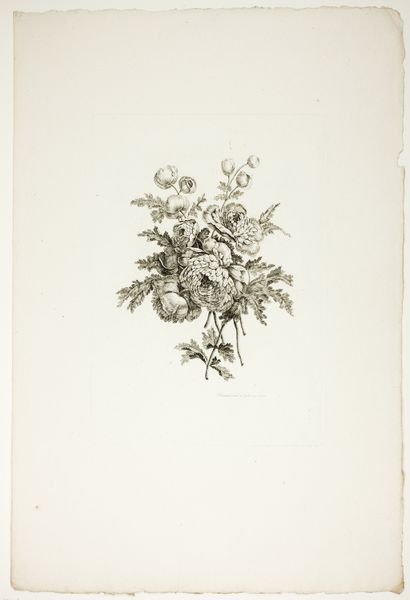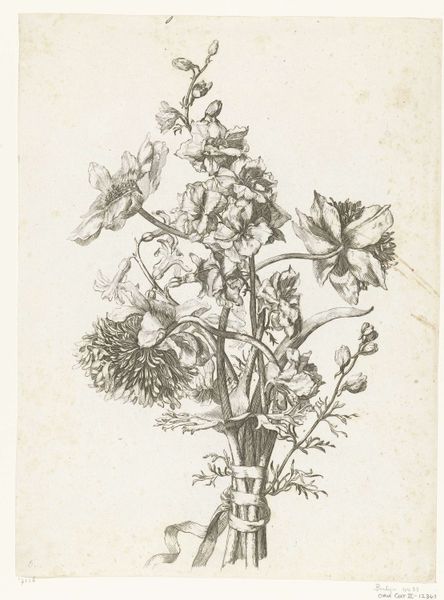
drawing, paper, pencil
#
drawing
#
paper
#
pencil
Dimensions: height 348 mm, width 232 mm
Copyright: Rijks Museum: Open Domain
Curator: I find myself immediately drawn to the delicate shading, almost ghostly, of this pencil drawing. It feels unfinished, yet intentionally so. Editor: You’ve picked up on something interesting. The piece is entitled *Aardappelplant,* meaning potato plant. The artwork, created sometime between 1700 and 1900, showcases a detailed rendering on paper. The lack of attribution allows the work to exist outside a named creator. Curator: Knowing it's a study of a potato plant certainly contextualizes its muted palette and restrained style. There is a raw element here—are those tubers resting at the base? Editor: Indeed, at the base of the paper, near the lower part of the main stem, you observe tuber elements sketched. The drawing showcases the root-to-flower process with the subject emerging from the earth. I find this interesting within the broader agricultural developments of that time. Curator: You are so right! It is easy to read drawings as being distinct and seperate artworks, but that misses its material basis and how studies were fundamental for production, knowledge gathering, and food industries! What do you make of that written section in the top left of the artwork? Editor: This feels like an annotation documenting observation dates, or an owner's note. These forms of intervention—notes, collections and exhibition locations—provide an interesting way of looking at institutional frameworks surrounding display practices for different kinds of sketches. Curator: Absolutely! Plus the nature of pencil on paper allows for such ease of inscription. One can see its affordability as allowing a different class of participants, democratizing a kind of archival. Editor: A democratizing gesture with socio-economic ramifications in the visual arts: nicely said. Thinking more on this piece and this exchange, it has made me consider drawing and archiving as processes of institutionalization. Curator: I love the reminder to stay vigilant about art's entanglement with wider historical issues of display and social value. Editor: Indeed! Let’s move onto our next selection.
Comments
No comments
Be the first to comment and join the conversation on the ultimate creative platform.
